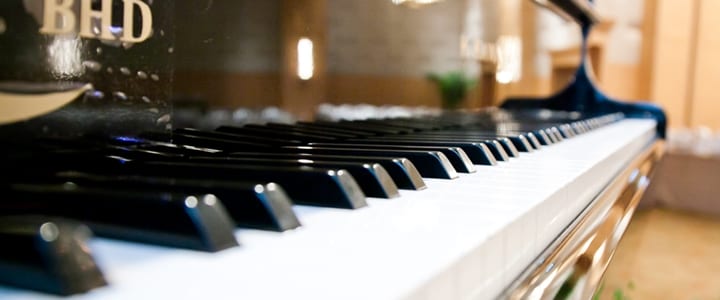Preparing for the ABRSM piano exam? Check out these helpful tips from New York, NY teacher Nadia B...
Piano exams can be an excellent way to challenge your musicianship, set and reach clear musical goals, and improve all facets of your playing. There are many different types of examinations, but one of the most well-established and thorough is the ARBSM piano exam, administered by the exam board of the Royal Schools of Music. It is a comprehensive examination with eight levels, allowing you to progress sequentially through the levels throughout your piano study, and it includes a practical piano performance, scales and arpeggios, sight reading, and aural tests. The following suggestions are designed to help you with the preparation so you can earn a high score on the exam and progress to the next level. Good luck!
Make a Plan
Perhaps the most important tip of all with regard to the ABRSM piano exam is to make a plan. Because you will want to take at least a few to several months to prepare for each exam level, it’s important to look at the bigger picture as you practice each week. It’s a challenging exam to prepare for because you need to learn three pieces to be performed accurately and at a high musical standard, in addition to being proficient in scales and arpeggios, sight reading, and aural skills (and theory, which is a requirement in tandem with the piano exam after level 5).
For this reason, I encourage my students to write out a written timeline of goals, with a weekly practice itinerary to meet those goals. For example, a typical week might include: practice and memorize x number of scales and arpeggios (and/or review or increase speed of scales and arpeggios already learned), work on specific sections of each piece as determined with the guidance of your teacher, and sight read at minimum x number of pieces. You will almost certainly need to adjust your timeline and goals as you go along, but the most important part is to create it, implement it, and then adjust it as needed. Also make sure to consult with your teacher and the exam criteria to formulate your plan.
Practice in a Variety of Ways
Another challenge of preparing for the exam is working on difficult repertoire for an extended period of time. While there is plenty to improve upon, there is also the danger of falling into rote memorization, muscle memory, and a musical rut. This not only takes away the freshness and creativity of music-making, it also jeopardizes your ability to perform well on the exam. When exam conditions are different from what you expected and nerves are interfering, performing something learned through rote memorization means that a small mistake could throw you off and leave you unable to recover quickly.
So, to challenge your musicality and strengthen your exam preparation, keep your practicing novel – practice with the music, without it, with your eyes closed; break the music down into each hand or voice within the harmony; use different rhythms to drill challenging passages (ditto for scales and arpeggios); and try to infuse each practice run-through with unique musical expression and ideas. This will ensure that your performance in the exam is inspired, assured, and distinctive.
Be Proactive About Nerves
Nerves are something else worth addressing and working through when undertaking the ABRSM piano exam. My approach with my students is two-fold. First, I encourage them to perform as much as possible prior to the exam. This could be for family and friends (in which case you could also employ some of them as mock jurors), at your piano studio’s annual recital, or as a volunteer in nursing homes or similar facilities. The other thing I recommend is to remember that nerves represent a type of energy running through your mind-body. The thoughts and sensations are your body’s reaction to an increase in energy. You can harness that energy within your body to create a greater awareness of your self, your environment, and the music. Feeling nervous is actually a positive thing that tells you that you are alive, engaged in the process, and full of energy that you can apply to your musical performance.
Get Extra Help
For the aural and theory components, don’t hesitate to seek out extra help. If you’re finding it difficult to address all the exam components with your teacher in the timespan of your piano lesson, schedule a longer lesson, or have separate lessons for aural and theory. They are valuable skills for musicians that deserve sufficient attention and preparation.
As you get ready for the ABRSM piano exam, remember to enjoy the process; it’s a wonderful opportunity to learn some incredible repertoire of the piano, gain new skills, and develop as a musician. The rewards are plentiful!
 Nadia B. teaches flute and piano in New York, NY, as well as through online lessons. She acted as principal flutist of the orchestra and wind ensemble at California State University, Sacramento, and then went on to receive her degree in Music Performance from New York University. Learn more about Nadia here!
Nadia B. teaches flute and piano in New York, NY, as well as through online lessons. She acted as principal flutist of the orchestra and wind ensemble at California State University, Sacramento, and then went on to receive her degree in Music Performance from New York University. Learn more about Nadia here!
Photo from http://gb.abrsm.org/
Suzy S.


